The Top 12 Foods For Fertility
May 20, 2019 By Sarah WhiteNo Comments
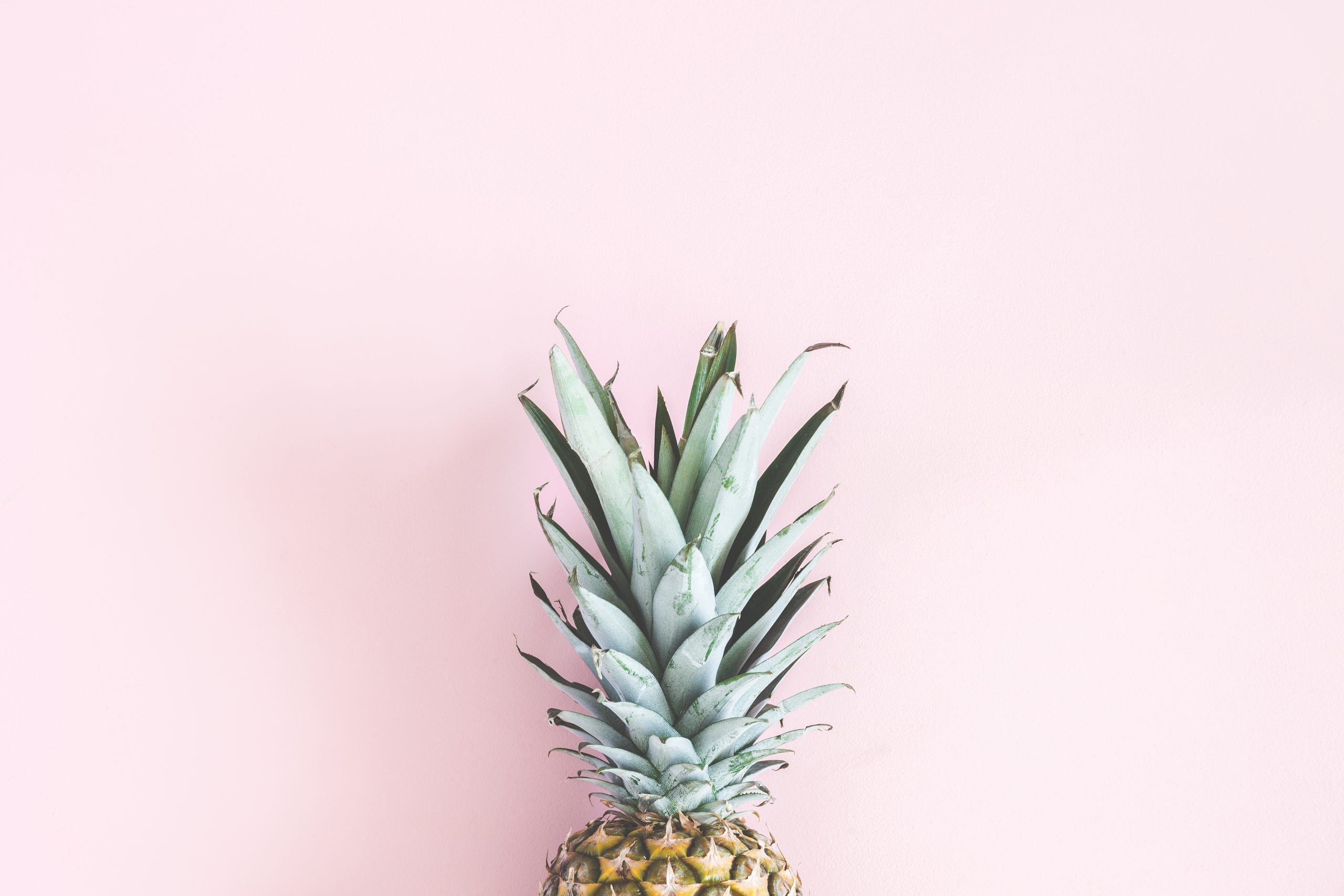
The Top 12 Foods For Fertility
Nutrition is always a priority in my clinical practice but when it comes to preparing your body for pregnancy the foods you are are even more important than ever. A balanced nutrient-rich diet for 3 – 6 months prior to making a baby will not only help to provide you with the right building blocks for your child, it will also help to set your body up for better recovery post-pregnancy. With the right fertility-supportive nutrients you’ll be more likely to conceive, less likely to develop issues during pregnancy, and possibly even have an easier time after giving birth. If you’re thinking of conceiving (even a few years down the line), now is the time to start thinking about your diet & environment – as these are important to your fertility as well as your future baby’s health.
Orange Fruits + Vegetables:
Orange foods are one of nature’s best sources of beta-carotene, a specific pigment that has potent antioxidant activity. It’s critical to consume more antioxidant-rich foods when trying to conceive since they can help to neutralize damaging free radicals. The ovaries and sperm are especially vulnerable to these free radicals, and the carotenoid compounds found in orange foods are wonderful at reducing oxidative damage to the reproductive organs. Research shows us that beta-carotene can help improve progesterone (pro-gestation hormone) production in women, and prevent sperm damage in males.

Blackstrap Molasses
Iron deficiency is one of the most prevalent nutritional deficiencies affecting women of childbearing age. It is also a common cause of fatigue, brain fog, hair loss and insomnia – which is why it’s so important to run frequent lab tests if you experience these symptoms and are currently trying to get pregnant. Molasses is a fertility superfood for those of you with low iron status; 1 tbs of molasses has almost the same iron content as half of a steak. Iron is incredibly important for conception because you need it to build nutrient-rich blood and to provide adequate blood flow to the ovaries and uterus. You can add molasses to baking, oatmeal, or smoothies, but my favourite way to get more molasses is in this delicious iron-boosting salad recipe.
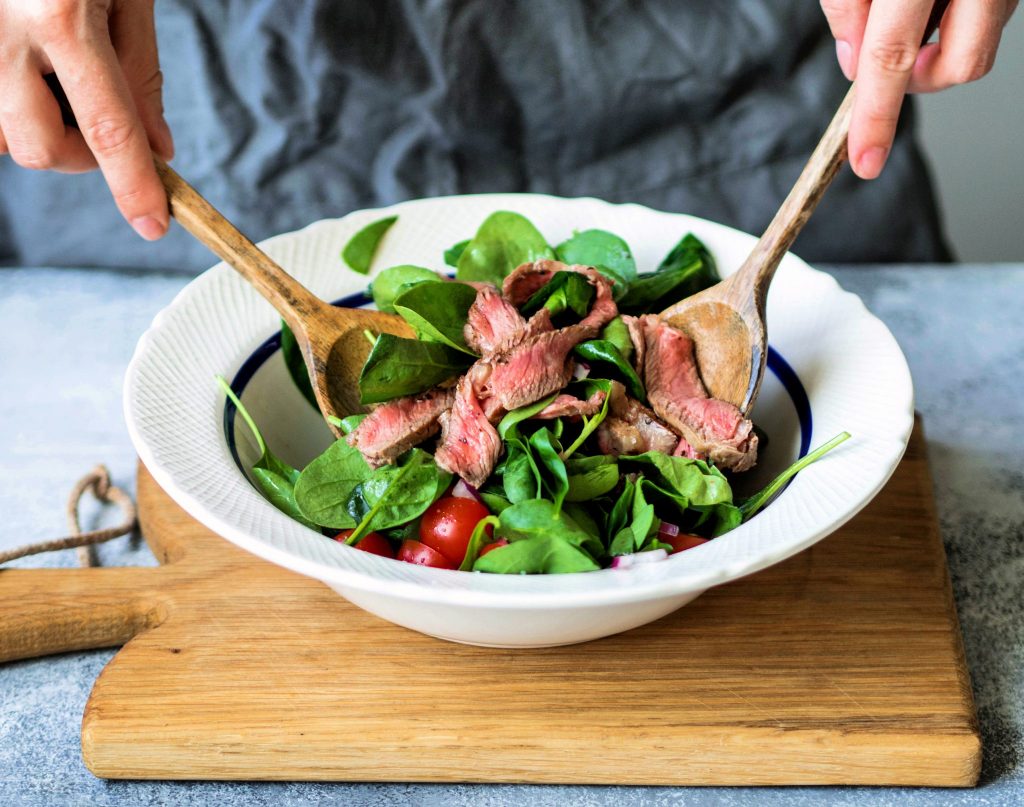
Walnuts
PUFAs (aka omega 3 fatty acids) are a type of anti-inflammatory fat that are essential for healthy hormones. Research suggests that increased dietary intake of omega-3s can balance hormones by reducing levels of the stress hormones cortisol and adrenaline. The best dietary sources of PUFAs in a Western diet include wild fish (see below) & walnuts. Walnuts are much less expensive than organic fish and less likely to be contained with heavy metals. They are a wonderful source of polyunsaturated fats (PUFAs) but also contain iron, selenium, calcium, zinc, vitamin E and some B vitamins. Walnuts are an ideal snack for your partner as well since studies show that walnuts can improve sperm quality. ½ cup walnuts daily has been shown to improve sperm motility & morphology, and to prevent oxidative damage.
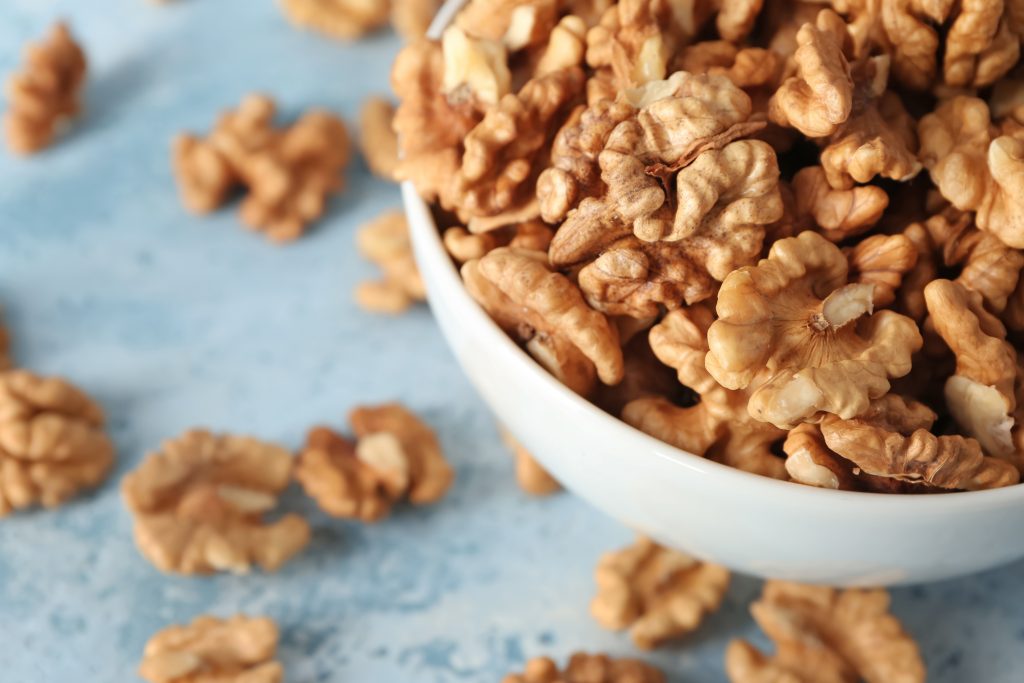
Beets
Beets are a fantastic food source of fertility-supportive antioxidant resveratrol, which may help to combat age-related infertility. The high nitrate content of beets additionally helps your body produce more nitric oxide (NO), which dilates the pelvic blood vessels allowing more nutrient-rich blood to be delivered to your reproductive organs. Improved blood flow = improved implantation and higher chance of conceiving. Beets are also traditionally prescribed as a blood-building food to improve iron and oxygen status in your red blood cells. Beets can be juiced and added to smoothies, roasted and tossed onto a salad or even snuck into baked goods and pancakes like in my favourite special occasion breakfast: pink crepes.
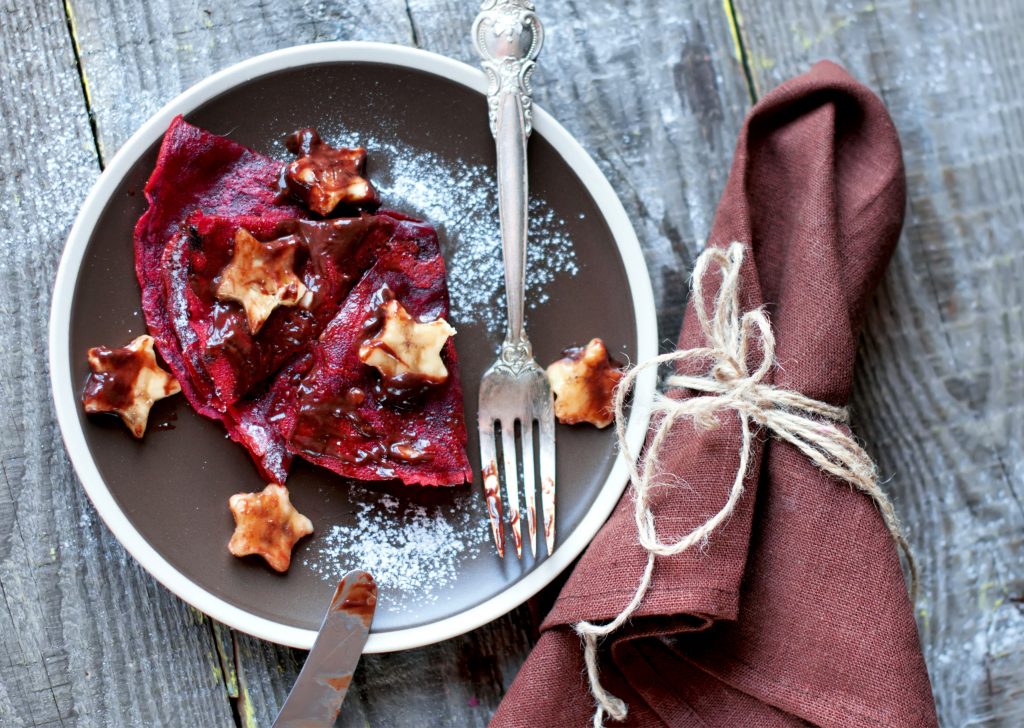
Grass-Fed Organic Beef
Organic, grass fed, hormone-free beef is a powerful blood-building food because it’s a significant source of heme iron. This type of iron is much better absorbed than plant based irons and adequate iron status is essential for reproductive health. Grass-fed beef is also rich in protein and healthy fats, as well as essential vitamins B12, B1, B2, B6, folate, and biotin. Lean protein sources like organic chicken and turkey are also a great addition to your fertility diet but they don’t contain the same levels of nutrients and iron found in grass-fed beef. Not a fan of steak? Try my spicy beef chilli recipe instead with 20g of organic protein per serving.
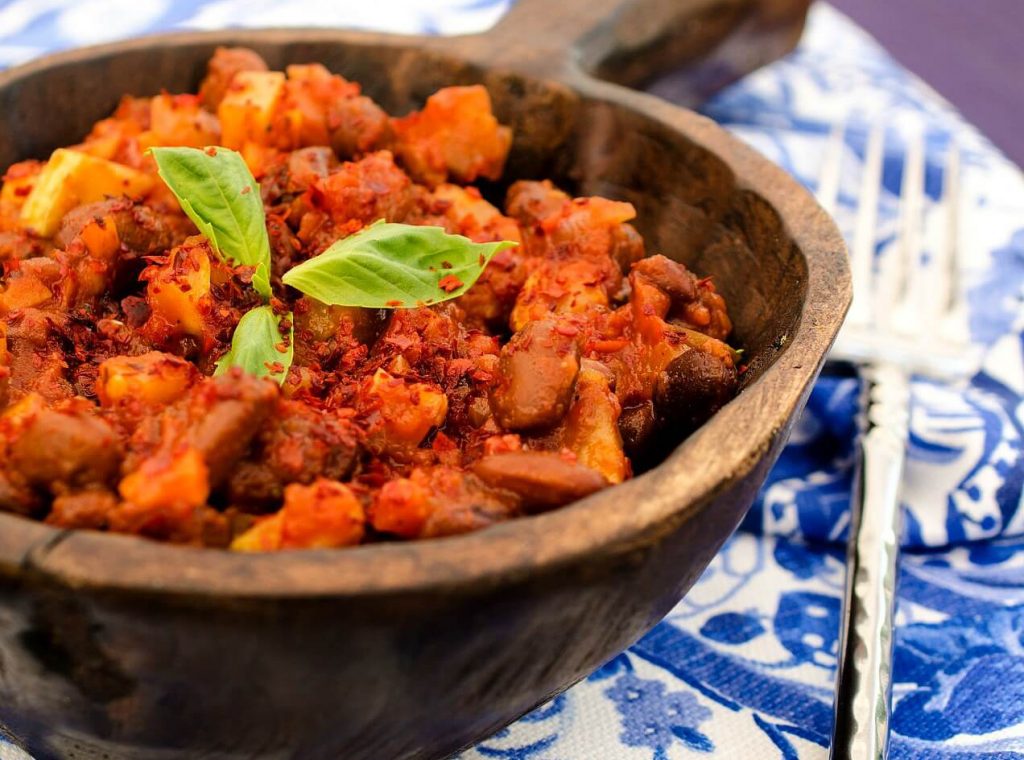
Brazil Nuts
Brazil nuts contain anti-inflammatory fatty acids and nitric oxide for improved blood flow to the pelvis. They’re also hands down the best food source of a thyroid-supportive nutrient called selenium. Selenium has been shown to lower antibodies against the thyroid gland, which is important since higher antibody levels in pregnant women are actually linked to a lower IQ level in their future children. Selenium also plays an important role in helping the body produce and recycle glutathione which protects the ovaries from free radical damage. Brazil nuts contain around 250mcg per 3 – 4 nut serving, which is as high of a dose as you’d get in a supplement. When you’re sick of munching on plain brazil nuts I suggest you try my chocolate covered brazil nut recipe for a healthy treat.
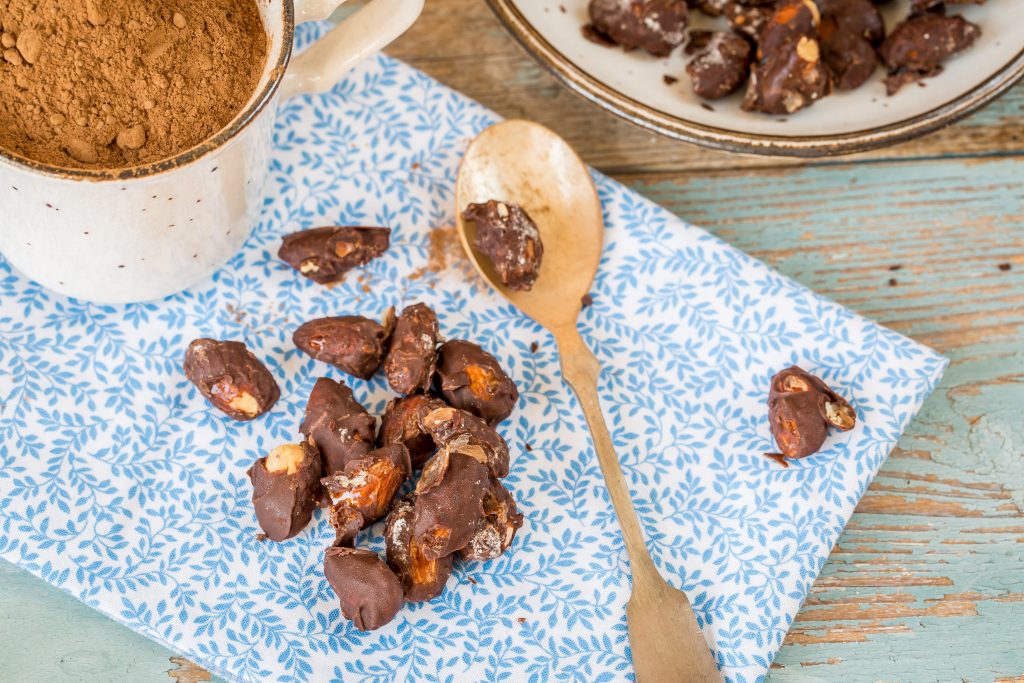
Eggs
Eat an egg for healthy eggs! Eggs are absolutely one of the best foods to improve your fertility because they contain a nutrient called phosphatidylcholine which is essential for a healthy pregnancy and well-functioning ovaries. Studies show that phosphatidylcholine requirements are increased during pregnancy and that adequate dietary intake is important to the brain development of you future baby. Free range eggs also contain essential fatty acids, protein (7g/egg), and so many other ovary-boosting nutrients. And please don’t just eat the egg whites; the yolks provide around 0.52 mg mitochondrial-supportive CoQ10 per serving.
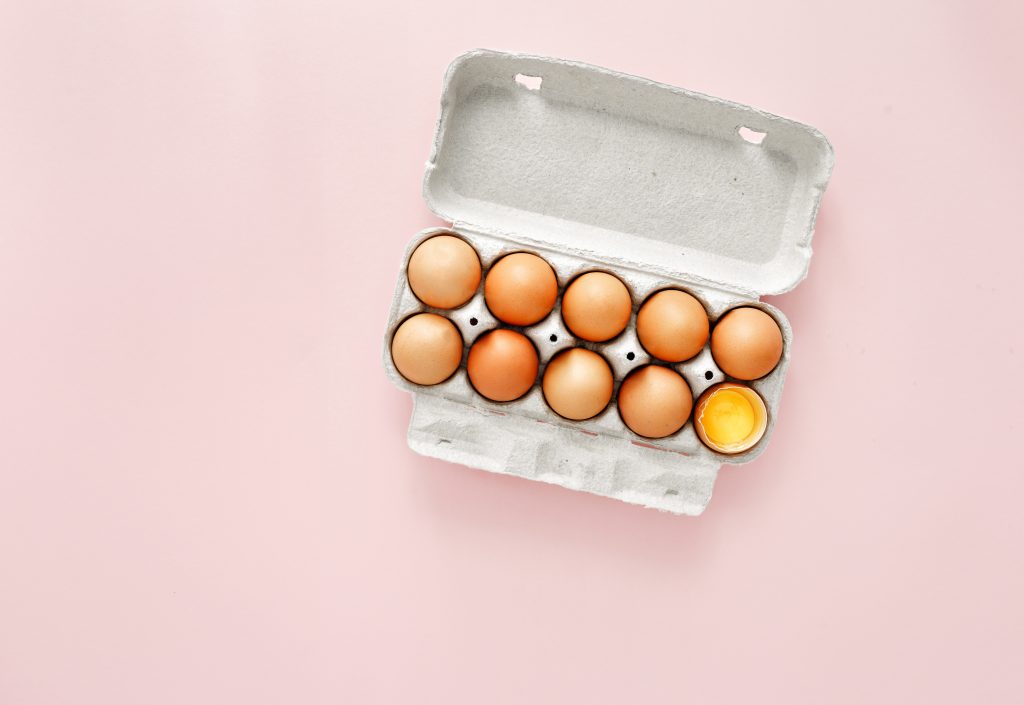
Salmon
Wild caught organic salmon is one of my top fertility foods because it’s rich in both protein and essential fatty acids. A minimum daily protein requirement for my patients looking to get pregnant is 60g / day, but you can calculate your optimal daily protein intake by multiplying your weight in kg x 0.8. Wild caught fish like salmon provides the amino acids required to protect the mitochondria in your ovaries (one of the most mitochondrial-rich areas of your body – baby making requires a ton of energy people!). Protein from wild fish like salmon also provides a nutrient called carnitine, which helps to move fatty acids across the mitochondrial membrane of the ovaries where they can be used as a fuel source. Make sure that you’re only eating wild caught fish at this critical time since heavy metals and toxins found in farmed salmon can be detrimental to your ability to conceive and may even be harmful to the health of your future baby.
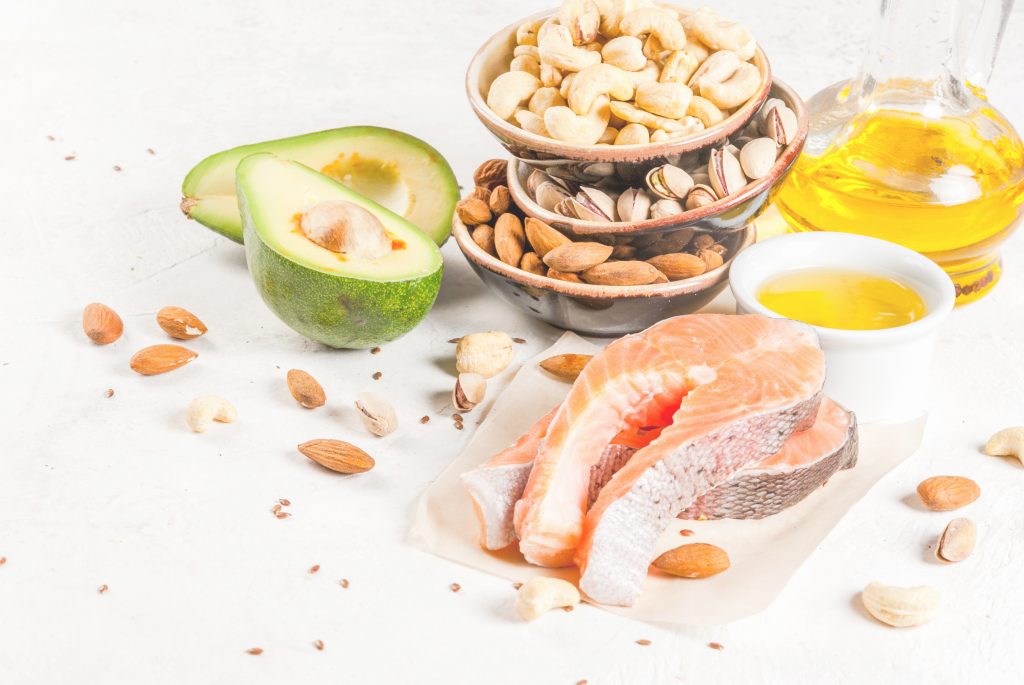
Sunflower Seeds
Sunflower seeds can be eaten anytime when trying to conceive, but are especially important in the second half of your cycle because they are great food sources of zinc and vitamin E; two nutrients that have been shown to stimulate progesterone production and improve ovary health. It’s important to support optimal progesterone levels in preconception since this hormone is needed to maintain pregnancy and healthy ovulation. Sunflower seeds also happen to be another great source of phosphatidylcholine for the healthy development of your future baby. Sunflower seeds are a part of my favourite hormone-balancing protocol called seed cycling. Sprinkle 2 tbs sunflower seeds on your salads or throw a handful into your daily smoothie.
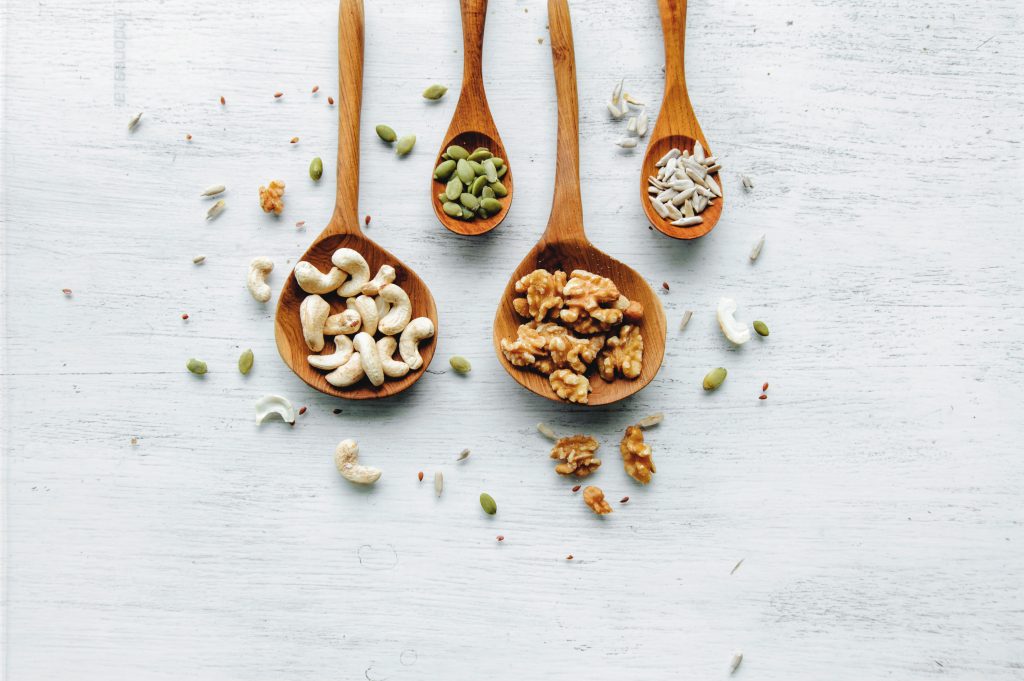
Pineapple
Pineapple is a well-adopted symbol in the fertility community for a reason! Pineapple (especially the core) contains an enzyme called bromelain, which is a powerful anti-inflammatory. Uterus receptivity is an important aspect of fertility, and inflammation is a known cause of implantation failure and early pregnancy loss. Eating plenty of anti-inflammatory foods, like pineapple, can help reduce inflammation in the uterus and provide a healthier environment for implantation. Pineapple is also said to increase the quantity & quality of cervical mucus; that stretchy mid-cycle substance that improves fertility by keeping sperm nourished and mobile on their journey to your egg. Other foods to that can reduce inflammation include ginger, turmeric, green tea, wild salmon, dark leafy greens, and fermented foods.

Flax Seeds
Not only are these seeds a great source of fertility-supportive fats, they are also part of my favourite hormone balancing dietary therapy; seed cycling. Flax seeds support healthy estrogen production in the first half of your cycle because they contain high levels of lignans – plant polyphenols that help to modulate estrogen levels. Due to their similarity to estrogen, lignans can act as female hormone normalizers by either blocking or enhancing estrogen function. This means that flax seeds can have either estrogenic or anti-estrogenic effects in the body depending on your own estrogen levels. High estrogen (and subsequent low progesterone) levels are at the root cause of many of my patient’s infertility struggles, and can lead to estrogen-dominant reproductive diseases like endometriosis and fibroids. Not only are flax seeds wonderful for balancing estrogen levels, they also contain a good dose of omega 3 fatty acids and fibre, both of which contribute to healthy hormones via their impact on the good bacteria in your digestive system. Stuck on how to incorporate more of these wonder seeds into your daily diet? Try my flax-based morning muesli or these blueberry lemon keto flax muffins.
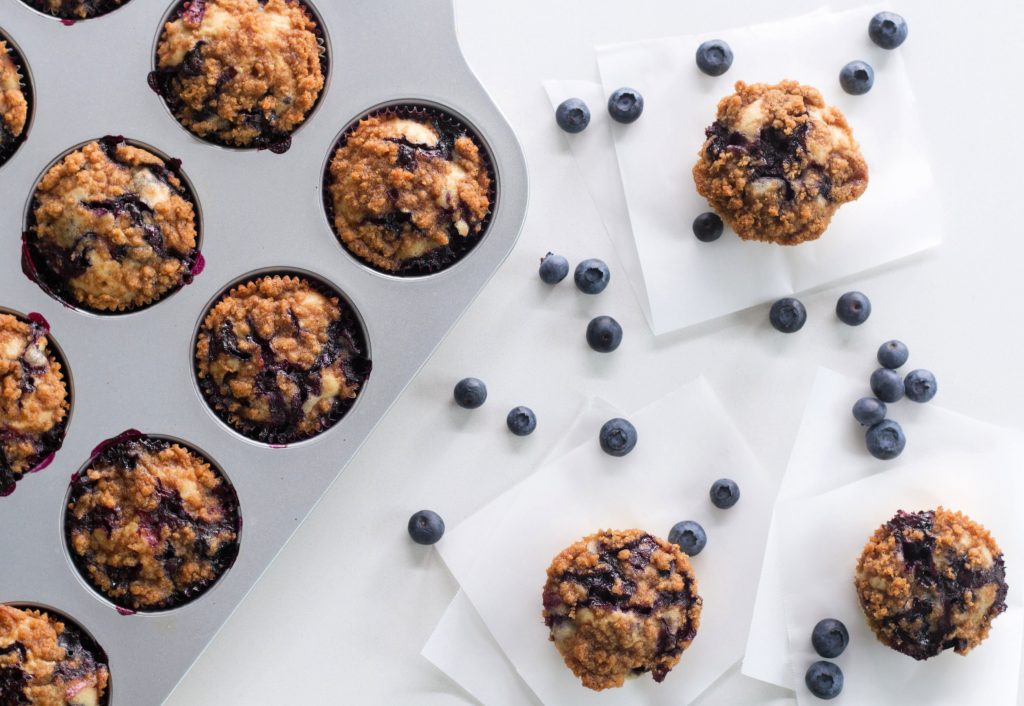
Oysters
Taking your partner out for oysters once weekly (there are tons of great buck-a-shuck nights in Oakville & Toronto) is a great & delicious way to enhance your fertility. Oysters are a wonderful source of dietary zinc and other key minerals that are important in the preconception period. They are also high in protein, low in calories, and loaded with ovary-protective vitamins including vitamin B-12 and selenium. Regular oyster consumption can also enhance arousal since they contain specific amino acids that trigger the production of sex hormones.
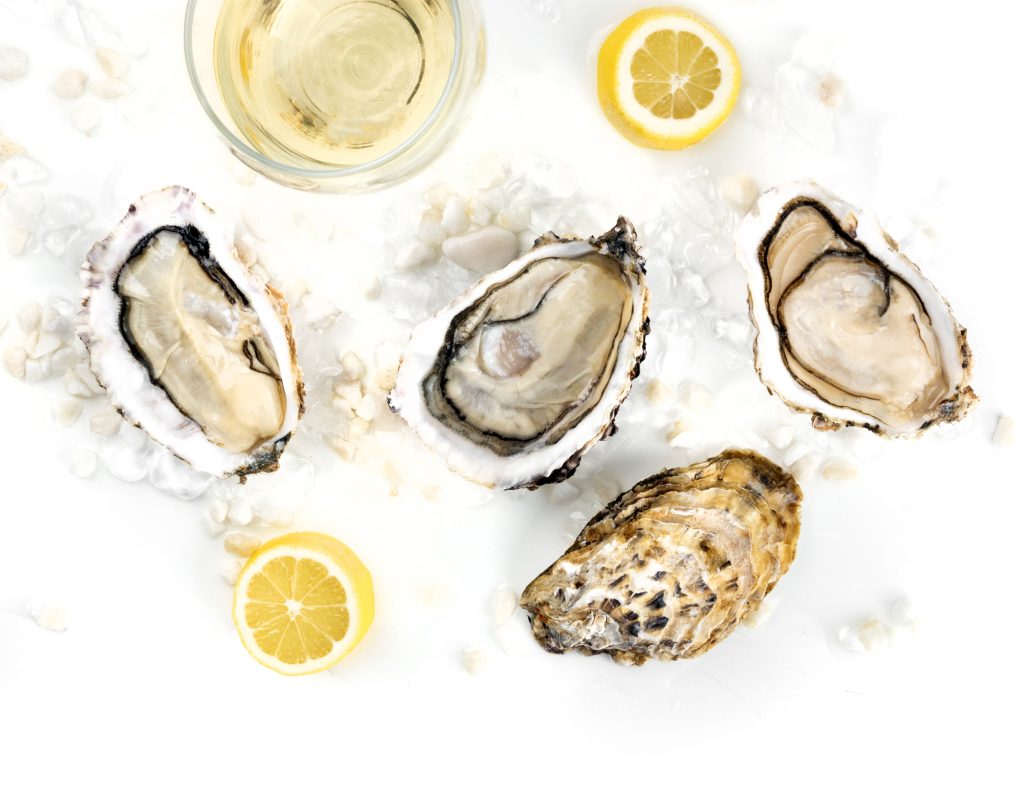
If you live in Oakville and want to developed your own personalized fertility protocol you’re welcome to book in for an initial consultation or contact me via my website for additional information.
If you’d like to work together and you’re not a resident of Ontario*, or you’d prefer an online consultation you can book online with Dr. Sarah here.
*Note: online services provided by Dr. Sarah to those of you living outside of Ontario are delivered as a Certified Functional Medicine practitioner consult and not as an Naturopathic doctor appointment & as such they will not be eligible for reimbursement through private insurance.
References:
- https://www.ncbi.nlm.nih.gov/pubmed/27562289
- https://www.ncbi.nlm.nih.gov/pubmed/19141099
- https://www.ncbi.nlm.nih.gov/pubmed/21749600
- https://www.ncbi.nlm.nih.gov/pmc/articles/PMC5506767/
- https://www.rbmojournal.com/article/S1472-6483(18)30095-6/pdf
- https://www.ncbi.nlm.nih.gov/pubmed/21986339
- https://www.ncbi.nlm.nih.gov/pubmed/15650394
- https://www.ncbi.nlm.nih.gov/pmc/articles/PMC6078194/
- https://www.ncbi.nlm.nih.gov/pmc/articles/PMC3523162/
- https://www.ncbi.nlm.nih.gov/pmc/articles/PMC5989150/
- https://walnuts.org/nutrition/nutrition-info/protein-fiber-magnesium-and-phosphorous/
- https://www.ncbi.nlm.nih.gov/pubmed/3014093
- https://www.ncbi.nlm.nih.gov/pmc/articles/PMC4247320/
- https://www.ncbi.nlm.nih.gov/pmc/articles/PMC2752973/
- https://www.ncbi.nlm.nih.gov/pmc/articles/PMC3941370/
- https://www.ncbi.nlm.nih.gov/pmc/articles/PMC5461594/
- https://www.ncbi.nlm.nih.gov/pubmed/22010771
- https://europepmc.org/abstract/med/18296341
- https://www.ncbi.nlm.nih.gov/pmc/articles/PMC3171895/
This information is not intended as a substitute for the advice provided by your Naturopathic doctor or primary care physician. Do not use the information in this document for diagnosing or treating a health problem or disease. Always speak with your Naturopathic doctor before taking any medication or nutritional or herbal or using any treatment for a health problem. If you have or suspect that you have a medical problem, contact your health care provider promptly. Do not disregard professional medical advice or delay in seeking professional advice because of something you have read online.
COMMENTS
Leave a Reply
This site uses Akismet to reduce spam. Learn how your comment data is processed.
Mauren Meneses says
MAY 13, 2021 AT 8:15 AM
Hormonal issues and nutritional help
Reply